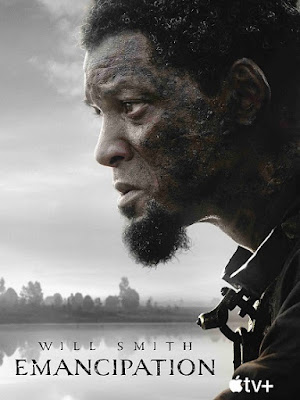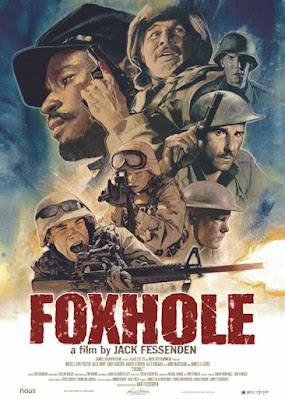Suddenly, the Formalism school of criticism doesn’t look so bad to Apple. Adherents of that critical theory focused exclusively on the work itself, rather than the psychological and biographical particulars of the writer. Of course, Apple TV has largely fostered a different approach, producing work like Roar and Gutsy, whose entire reason for being is their status as women-created series. Now, they are releasing a $130 million acquisition, starring Will Smith, post-slap, hoping audiences will just focus on the work itself. There is indeed some notable on-screen drama, but it is hard to ignore the odd off-screen circumstances surrounding Antoine Fuqua’s Emancipation when it premieres tomorrow on Apple TV+.
Peter is a slave in Louisiana who would eventually be immortalized in the photo “Whipped Peter” or “Scourged Back,” which rallied the North and the rest of the world against slavery. As the film opens, the Confederate Army is about to “nationalize” Peter, to bolster the war effort. Unfortunately, that means he will be separated from his family, who remain at Captain John Lyons’ plantation.
The irony of his position, now toiling to preserve his own enslavement, is not lost on Peter. He also seethes under the lash of Jim Fassel, the brutal slave-driver, overseeing the construction of a Confederate artillery embankment. Therefore, when Peter hears of Lincoln’s Emancipation Proclamation, he decides to make a break for Baton Rouge, where Grant’s Army is encamped. However, getting there through the swamp will be grueling, especially with Fassel on his trail.
The truth is, Emancipation is more of a manhunt-style action film than a serious issue-oriented awards-bait film, which is perfectly fine. In fact, that definitely plays to Fuqua’s strengths as a filmmaker. Nevertheless, for a new Will Smith film, it has had an eerily quiet release, for obvious reasons. Eventually, there will probably be books written about the behind-the-scenes dramas. There is no getting around Smith, but plenty of websites claim Timothy Hutton plays “Senator John Lyons,” but you won’t see the actor (who has faced criminal accusations that have not as yet led to formal charges) in the film or its closing credits.
Refocusing again on the film as it is, Smith contributes a very good, very physical performance. He really transforms himself to look weathered, battered, and aged well-beyond his years. However, he only has one really Oscar-friendly speech in the entire film. That is far from a bad thing, because it means the two-hour-plus film moves along at a good clip.
Ben Foster is again suitably creepy as the virulently racist Fassel. Mostly, he is just a nasty villain, but Foster has a key monologue that illustrates how slavery poisoned him during his innocence youth, which echoes Abolitionist arguments of the time, regarding the corrupting influence slavery had on whites as well.



